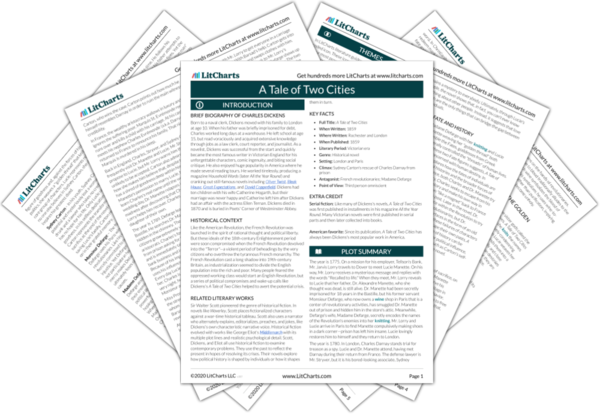Madame Defarge with her knitting and Lucie Manette weaving her "golden thread" both resemble the Fates, goddesses from Greek mythology who literally controlled the "threads" of human lives. As the presence of these two Fate figures suggests, A Tale of Two Cities is deeply concerned with human destiny. In particular, the novel explores how the fates of individuals are shaped by their personal histories and the broader forces of political history. For instance, both Charles and Dr. Manette try to shape and change history. Charles seeks to escape from his family's cruel aristocratic history and make his own way in London, but is inevitably drawn "like a magnet" back to France where he must face his family's past. Later in the novel, Dr. Manette seeks to use his influence within the Revolution to try to save Charles's life from the revolutionaries, but Dr. Manette's own forgotten past resurfaces in the form of an old letter that dooms Charles. Through these failures of characters to change the flow of history or to escape their own pasts, A Tale of Two Cities suggests that the force of history can be broken not by earthly appeals to justice or political influence, but only through Christian self-sacrifice, such as Carton's self-sacrifice that saves Charles at the end of the novel.
Fate and History ThemeTracker












